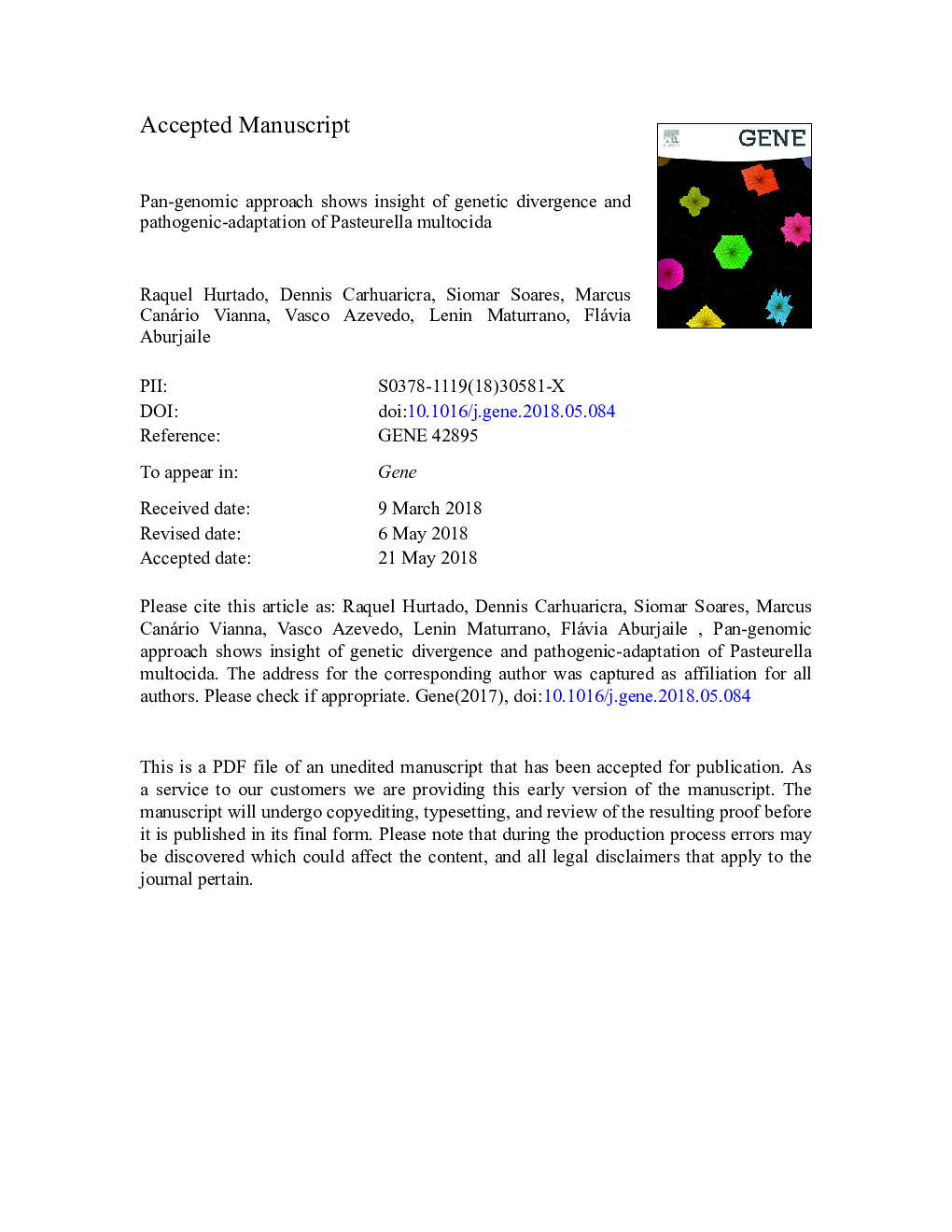| Article ID | Journal | Published Year | Pages | File Type |
|---|---|---|---|---|
| 8644731 | Gene | 2018 | 35 Pages |
Abstract
Pasteurella multocida is a gram-negative, non-motile bacterial pathogen, which is associated with chronic and acute infections as snuffles, pneumonia, atrophic rhinitis, fowl cholera and hemorrhagic septicemia. These diseases affect a wide range of domestic animals, leading to significant morbidity and mortality and causing significant economic losses worldwide. Due to the interest in deciphering the genetic diversity and process adaptive between P. multocida strains, this work aimed was to perform a pan-genome analysis to evidence horizontal gene transfer and positive selection among 23 P. multocida strains isolated from distinct diseases and hosts. The results revealed an open pan-genome containing 3585 genes and an accessory genome presenting 1200 genes. The phylogenomic analysis based on the presence/absence of genes and islands exhibit high levels of plasticity, which reflects a high intraspecific diversity and a possible adaptive mechanism responsible for the specific disease manifestation between the established groups (pneumonia, fowl cholera, hemorrhagic septicemia and snuffles). Additionally, we identified differences in accessory genes among groups, which are involved in sugar metabolism and transport systems, virulence-related genes and a high concentration of hypothetical proteins. However, there was no specific indispensable functional mechanism to decisively correlate the presence of genes and their adaptation to a specific host/disease. Also, positive selection was found only for two genes from sub-group hemorrhagic septicemia, serotype B. This comprehensive comparative genome analysis will provide new insights of horizontal gene transfers that play an essential role in the diversification and adaptation mechanism into P. multocida species to a specific disease.
Keywords
SISGC-contentHTHHGTCDSSNSSResistance islandsPTSVFSRISCoGLPSPHIrRNASNPsNCBIMCLTCARibosomal RNAKDOtricarboxylic acidRNAribonucleic acidHorizontal gene transfercoding sequencesPathogenicity islandsGenomic islandsGenesVirulence factorslipopolysaccharideMegabase(s)Single nucleotide polymorphismsmisPAISkilobase(s)
Related Topics
Life Sciences
Biochemistry, Genetics and Molecular Biology
Genetics
Authors
Raquel Hurtado, Dennis Carhuaricra, Siomar Soares, Marcus Vinicius Canário Viana, Vasco Azevedo, Lenin Maturrano, Flávia Aburjaile,
